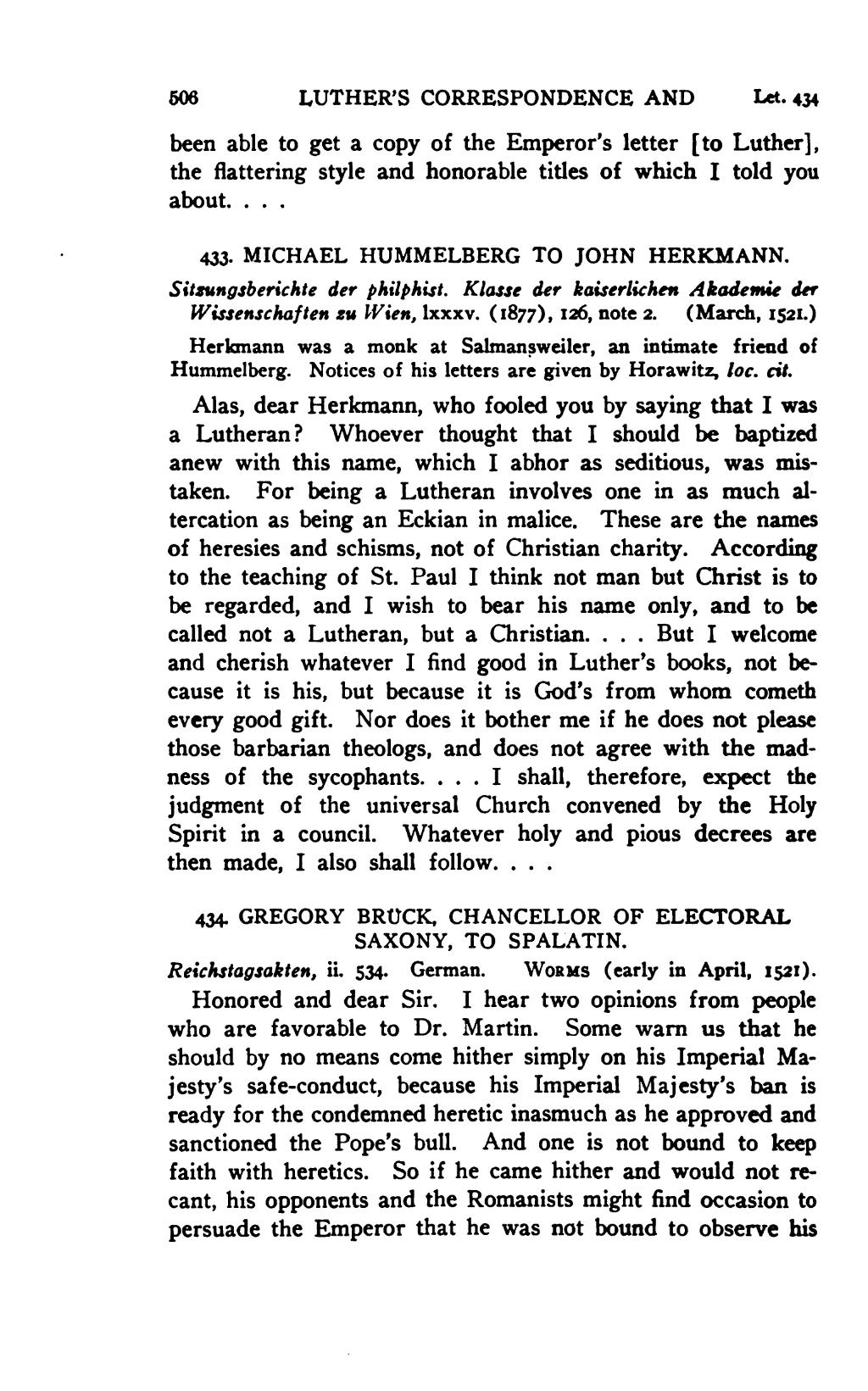been able to get a copy of the Emperor's letter [to Luther], the flattering style and honorable titles of which I told you about. . . .
433. MICHAEL HUMMELBERG TO JOHN HERRMANN.
Sitsungsberichte der philphist. Klasse der kaiserlichen AkademU der Wissenschaften zu IV ten, Ixxxv. (1877), 126, note 2. (March, 1521.)
Herkmann was a monk at Salmansweiler, an intimate friend of Hummelberg. Notices of his letters are given by Horawitz, loc. cit
Alas, dear Herkmann, who fooled you by saying that I was a Lutheran? Whoever thought that I should be baptized anew with this name, which I abhor as seditious, was mis- taken. For being a Lutheran involves one in as much al- tercation as being an Eckian in malice. These are the names of heresies and schisms, not of Christian charity. According to the teaching of St. Paul I think not man but Christ is to be regarded, and I wish to bear his name only, and to be called not a Lutheran, but a Christian. . . . But I welcome and cherish whatever I find good in Luther's books, not be- cause it is his, but because it is God's from whom cometh every good gift. Nor does it bother me if he does not please those barbarian theologs, and does not agree with the mad- ness of the sycophants. ... I shall, therefore, expect the judgment of the universal Church convened by the Holy Spirit in a council. Whatever holy and pious decrees are then made, I also shall follow. . . .
434. GREGORY BRUCK. CHANCELLOR OF ELECTORAL
SAXONY, TO SPALATIN.
Reichstagsakten, ii. 534. German. Worms (early in April, 1521). Honored and dear Sir. I hear two opinions from people who are favorable to Dr. Martin. Some warn us that he should by no means come hither simply on his Imperial Ma- jesty's safe-conduct, because his Imperial Majesty's ban is ready for the condemned heretic inasmuch as he approved and sanctioned the Pope's bull. And one is not botmd to keep faith with heretics. So if he came hither and would not re- cant, his opponents and the Romanists might find occasion to persuade the Emperor that he was not bound to observe his
�� �
